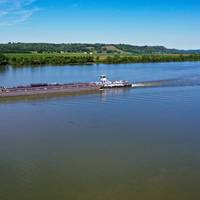How to Stop Injured Vessel Crew from Calling My Law Firm

For 20 years, I represented operators of OSVs, jack-ups, semi-submersibles, oil and gas production platforms, harbor tugs, towboats and barges in state and federal court personal injury litigation arising in the Gulf of Mexico, across the Great Lakes and on the inland waterways. For the last decade or so, I have been representing injured crew. In the case of a death or serious injury, sometimes there is little a vessel operator can do to prevent being sued. In my experience, though, many expensive lawsuits could have been avoided had the marine employer handled the situation differently.1.
USCG Guidance and Reporting Marine Casualties

U.S. Coast Guard Guidance Helps to Bring some Clarity to the Debate. In July 2015, the U.S. Coast Guard released Navigation and Vessel Inspection Circular 01-15 (“NVIC”), titled Marine Casualty Reporting Procedures Guide with Associated Standard Interpretations. The purpose of the NVIC is to assist vessel owners and operators in understanding the marine casualty reporting requirements, which many in the industry think are about as clear as mud. Confusion as to what constitutes a marine casualty and what incidents need to be reported has persisted in the marine industry for years.
“Immediately” Means Now!

U.S. By Frederick B. Most commercial mariners and their vessel operating employers probably know that when certain significant vessel-related events occur, these must be reported to the U.S. Coast Guard. In my experience, however, there is widespread uncertainty in the marine industry about what must be reported and, more significantly, when. Many companies learn the hard way about these requirements and end up paying healthy fines — anywhere from several hundred to thousands of dollars — for failing to “immediately,” as the regulations require, report such events.





